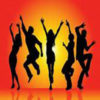So free will, how you might actually be a conscious and actively participant in the dance… If you look for free will in thought, you will fail to find it. There are just hints, never anything that will convince you. Have you found your genuine basis for choice in your thinking?
I’ve noticed that. It seems to be just habitual. Habitual and situational. They can pretty much program the conclusions you come to in experimental conditions. They can predict very reliably how you will interpret any circumstance based on their knowledge of human cognition. I use it to my own advantage on a daily basis as I have need. I have learned quite well how normal human beings construct their world around them, and where the blind spots are, and how viciously, even mindlessly they will defend those constructs. People don’t like having data faults induced in their perception.
Even if I do deviate from my pattern, there is a built in recording that nags me ‘that’s not right.’
So do you ever make choices based on what you actually see? Based on new things you have observed or changes in patterned occurrences around you? Do you make plans or decisions based on the dynamics of change around you? Does the question make sense?
People that do are considered crazy. I’m thinking of investors in what they see as the next big thing.
So you change your behaviour and thinking based on how your circumstances change? Do you choose the path you adopt when you do?
I don’t. For example, I can have more money then I used to and still make spending decisions the way I did in the past.
I suppose we make decisions by what we think we already know even when new information comes around. Which doesn’t change no matter how a situation changes, does it?
I think young people are more flexible than older people. They are more erratic. They have no more conscious control than their elders do. They are just less rehearsed in the cognitive dance steps. Is that unfair to say?
They are certainly not more conscious.
Sociologists, then psychologists, and now even neuro-scientists are coming to what they opine to be a vexing conclusion. Humans ultimately behave irrationally, emotionally. Economic analysts get to observe this on a daily basis. Everyone familiar with this information?
They have even tested “non-developed” peoples. Those that arguably would have the very least need to dramatize their decision making, less reason to elaborate or get dramatically imaginative about the supposed meaning of a decision. They still behave just as a first world citizen would, just with a different story to back it up.
So we seem stuck in an experiential tautology, a looped track in our consciousness. This is so constant and predictable that it leads most main stream scientists to conclude that there is no such thing as genuine free will. The reason we are stuck like this is we have allowed our primordial sense of self to shrivel. It remains a part of our being on a vestigial level at best. The reason that when all the cards are on the table, when we are under the greatest amount of distress, we revert to irrational behaviour, is that is the core consciousness. All of our survival awareness is contained there.
Our emotions are a face we put on a deeper sense, a deeper level of our being. The drive, that a thunder storm used to instigate in us, was much more than a childish “OMG! That’s so scary!” It may amuse scientists to think so. It allows them to puff up their egos and feel even more justified in the morally questionable things that they do. Convince themselves that they are actually seeking truth rather than serving and the socio-economic lapdogs they are forced to be. Those scary moments induced trance, and it’s more than the trumped up superficial head trip science is claiming the near death experience to be. It is more akin to the state of consciousness they now believe they are discovering (and they don’t really have a name for yet) where your brain can be under anaesthesia and your limb still respond as if it were under conscious control as well as being able to recall actual words said or other events otherwise detected though supposedly their brains were supposed to be able to detect nothing. In this state of trance, the brain becomes en-trained to physical forces around it, to biological responses both in the people who are also experiencing the fear, and in other species that are also effected by the fear stimulus.
The theory of mind adaptation is not as shallow as mainstream theorists are propounding it to be, and the observer in trance does retrain a memory of those experiences over time, even develops a systematic way to trigger them both in themselves and others. What differed between people originally was not the capacity for trance, but the range and capacity for engaged processing, like a singer having an ear for music versus a casual enthusiast who may still be able to sing pleasantly.
The primordial dance differs very little from an epileptic fit. The storm of signals in the brain during a seizure cascades through the entire range of human motion which is synonymous with emotion. So we dance to our trance, and we dance to entrance. A dance without feeling has what power? You are forever dancing. Though your heart is likely not in many of the steps, your mind knows no difference between your dancing and any other movements you engage in.
Your thoughts are welcome. Be well friends.
Travis Saunders
Dragon Intuitive
~science,mysticism,spirituality~



Leave a Reply